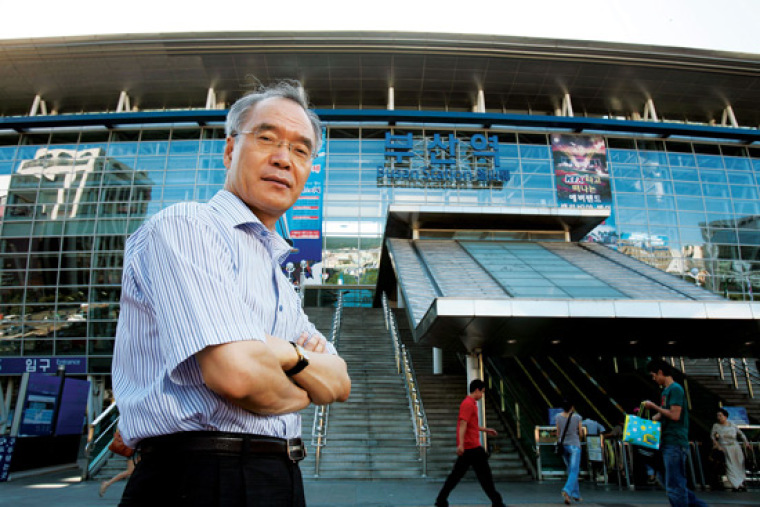
It's the centennial year of the great Pyongyang Revival, which had sparked a wave of audible prayers of repentance and rapidly grew Christianity from what is now the capital of North Korea to across the Korean peninsula. Pyongyang had earned the title "Jerusalem of the East" as it became the center of Christian activity up until the Korean War.
A century later, the Korean population is fervently praying for another revival today and Graham is in the country aiming to unite the citizens of Busan to God, he said at a press conference before kicking off a large-scale evangelistic festival on Thursday at Busan Asiad Stadium.
Busan is the second largest city in Korea and Christians make up less than 10 percent of its population, according to Sang Gyoo Lee, professor of church history at Kosin University in Busan. The entire South Korean population is nearly 30 percent Christian.
"Buddhist influence and coastal superstitions may have slowed the spread of the Gospel in Busan," Lee explained, according to the Billy Graham Evangelistic Association. "And because Busan is geographically close to Japan, Japanese indigenous religions have also penetrated the minds of many people."
When the Rev. Pildo Joung, senior pastor of Soo Young Ro Presbyterian Church in Busan, began ministering in Busan over three decades ago, he said the city was filled with Buddhism and superstition.
"I thought if Busan becomes gospelized, then the entire country can be gospelized," said Joung (by translation), who hopes Korea's 10 million Christians become ignited and spread revival across the country through the Busan Franklin Graham Festival this week.
Around 1,500 churches in Busan have united in an attempt to revive congregations and strengthen the Christian community. Their goal is to draw 500,000 people to the Franklin Graham Festival and lead 50,000 to Christ.
The first time Graham crusades hit South Korea was in 1973 when renowned evangelist Billy Graham, Franklin's father, preached to millions in the country. It was reportedly the largest evangelistic crusade Graham experienced in over 50 years of his ministry. The final day alone drew over a million Koreans to the Yoido Plaza in Seoul and over 100,000 decisions for Christ were recorded.
According to Lee, who attended the past Graham crusade as a university student, the impact of the event was visible in the church.
"Faction-torn churches set aside their differences to work together to reach their nation. At the time of the crusade, the Korean Protestant population was 3 million. By 1975, the membership of the Korean church increased to 4 million and then to 7.6 million by 1980. In the late 1970s, six new churches were planted every day, and 600,000 new church members were reported every year," he stated.
Today, South Korea has the world's second largest missionary movement after the United States with over 16,000 missionaries deployed around the world to countries such as China and to their brethren in North Korea with whom they hope to reunify the peninsula.
Just as revival was sparked 100 years ago in Pyongyang through the confession of sins, Franklin Graham said people must repent and return to God.
"I believe God will bless the Korean people," he said.
And Korean churches are anticipating a great work of God.
"We are full of expectation and hope about how God will do His work in this generation in Busan and in Korea," said Lee.
The Busan Franklin Graham Festival is being held on Oct. 18-21. In August, Graham broke records in Ecuador, attracting a crowd of over 185,000 people to the Festival of Hope.